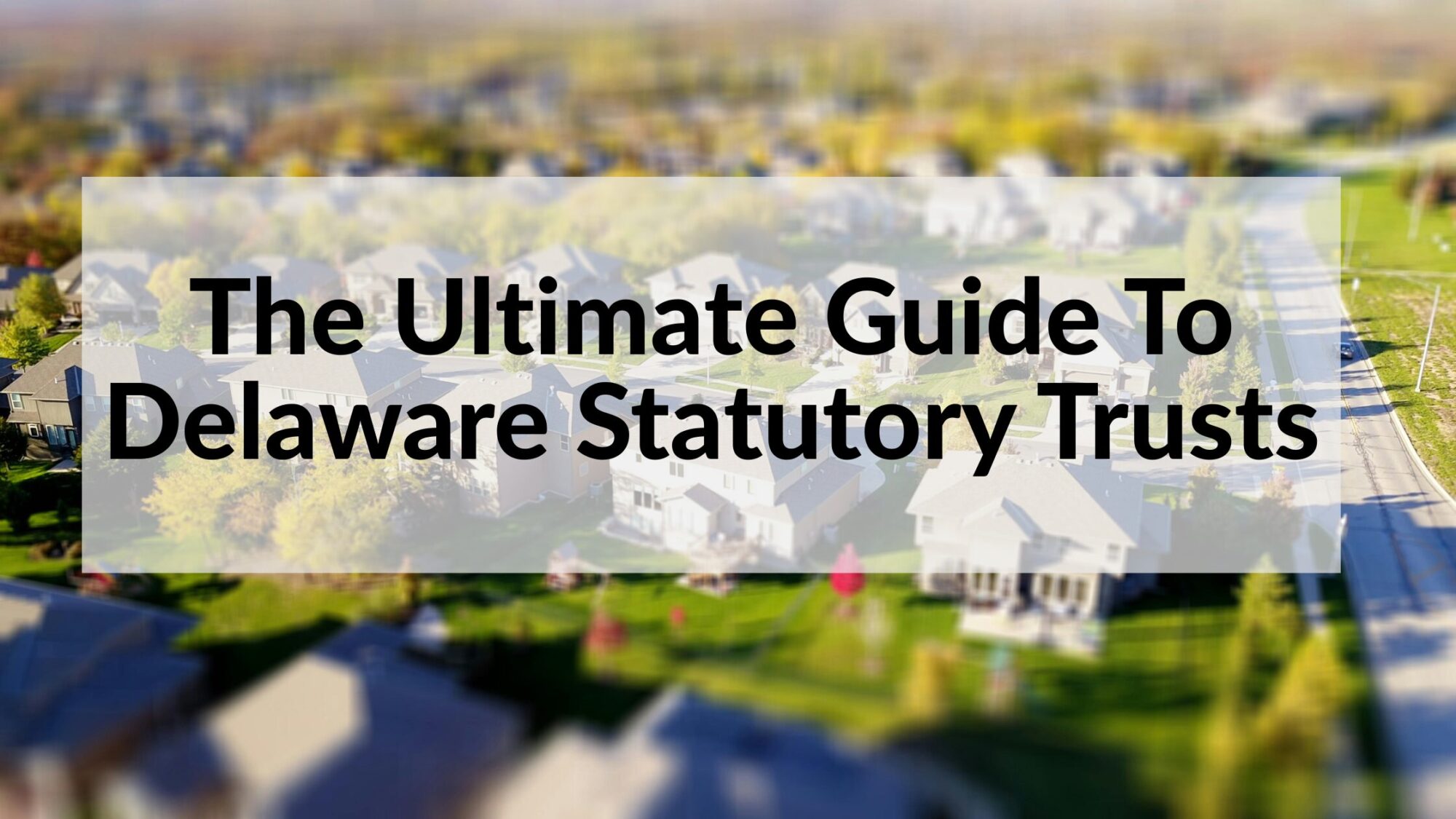Investing in real estate can be rewarding, but for many individuals, the demands of direct property ownership, management, maintenance, and tenant oversight, can be overwhelming. Delaware Statutory Trusts (DSTs) offer a unique structure that allows investors to access high-quality real estate opportunities without the hassle of hands-on involvement. This article explores how DSTs work, how they align with a 1031 exchange, and how they compare to similar structures like REITs.
What Is a Delaware Statutory Trust?
A Delaware Statutory Trust is a legally recognized trust structure, established under Delaware law, that allows multiple investors to hold fractional ownership in commercial real estate assets. These assets are typically institutional-grade properties such as multifamily housing, industrial buildings, or medical facilities.
Although the trust is based in Delaware, the properties can be located anywhere in the United States. Investors purchase beneficial interests in the trust, and the DST becomes the legal owner of the real estate.
The most compelling aspect? Investors can enjoy the benefits of real estate ownership, income, appreciation, and tax advantages, without managing the property themselves.
DSTs and the 1031 Exchange
One of the biggest draws for DSTs is their eligibility for 1031 exchanges. Under IRS Revenue Ruling 2004-86, investors can exchange real estate they own for beneficial interests in a DST while deferring capital gains taxes.
Here’s how it works:
- You sell your real estate property.
- Instead of taking the proceeds directly, you reinvest in one or more DSTs.
- This qualifies as a “like-kind” exchange, helping you defer taxes and maintain investment momentum.
The DST structure meets the requirements for replacement property in a 1031 exchange, providing investors a smooth transition from active ownership to passive income.
Benefits of DST Real Estate Investing
For those seeking passive real estate investing, DSTs offer several advantages.
1. Access to Institutional Properties
DSTs often hold high-value properties typically out of reach for individual investors. Through fractional ownership, you can participate in commercial real estate deals backed by professional sponsors.
2. Diversification
By investing in multiple DSTs, you can diversify across property types, locations, and tenants, mitigating risk and increasing stability.
3. No Management Duties
DSTs are fully managed by professional asset managers. Investors have no responsibilities related to property upkeep or tenant relations.
4. Predictable Income
Since DSTs often involve long-term leases with creditworthy tenants, they can provide stable monthly distributions.
5. Estate Planning Advantages
DST interests can be passed down to heirs with a step-up in basis, potentially reducing tax liabilities for beneficiaries.
DST Investment Pros and Cons
As with any investment, DSTs come with trade-offs. Let’s take a closer look.
Pros:
- 1031 exchange eligibility
- Hassle-free ownership
- Income potential
- Portfolio diversification
- Professional management
Cons:
- Illiquidity: DSTs are not traded on public markets.
- No control: Investors cannot influence decisions like selling or refinancing.
- Fees: Some offerings come with sponsor and management fees.
- Limited exit strategies: Investment terms are typically 5–10 years with limited secondary markets.
Understanding both sides of the coin is crucial before allocating capital to this type of investment.
Comparing DSTs to REITs
Another popular passive real estate vehicle is the Real Estate Investment Trust (REIT). While both DSTs and REITs offer exposure to real estate, their structures and benefits differ.
| Feature | DST | REIT |
| Ownership | Fractional interest in specific properties | Shares in a company that owns real estate |
| Liquidity | Low | High (public REITs) |
| 1031 Eligible | Yes | No |
| Control | No | No |
| Diversification | Moderate | High |
| Minimum Investment | High (typically $100,000+) | Low (can start under $1,000) |
DSTs appeal more to accredited investors using 1031 exchanges or seeking targeted property ownership. REITs, on the other hand, offer accessibility and liquidity, often suitable for broader investment portfolios.
Who Should Consider a DST?
If you’re a real estate investor nearing retirement, tired of managing properties, or planning a 1031 exchange, a DST may be a strategic move. It offers the ability to defer taxes while maintaining real estate exposure, without being tied to the demands of property management.
Investors must meet accredited investor standards, which typically means having a net worth of at least $1 million (excluding your primary residence) or meeting specific income thresholds.
Questions to Ask Before Investing
Before diving into any DST offering, ask:
- Who is the sponsor and what is their track record?
- What kind of property is in the trust?
- What is the lease structure and tenant quality?
- What are the projected distributions?
- How long is the investment term?
- Are there any upfront fees?
Doing your due diligence on the offering and the management team can make a major difference in outcomes.
Final Thoughts
Delaware Statutory Trusts are a powerful tool for investors looking to transition from active real estate ownership to a passive, income-generating structure. They provide an avenue to participate in premium properties while benefiting from potential tax deferrals via 1031 exchanges.
While DSTs may not be suitable for every investor, their combination of passive real estate investing, stable income, and estate planning advantages make them worthy of consideration. Evaluate the risks, understand the fees, and consult with a qualified advisor to determine if a DST aligns with your financial goals.


![How to Watch Movies Comfortably on a Plane [Ultimate Guide]](https://techbullion.com/wp-content/uploads/2025/11/Screenshot-59-300x180.png)
![How to Watch Movies Comfortably on a Plane [Ultimate Guide]](https://techbullion.com/wp-content/uploads/2025/11/Screenshot-59-80x80.png)





























